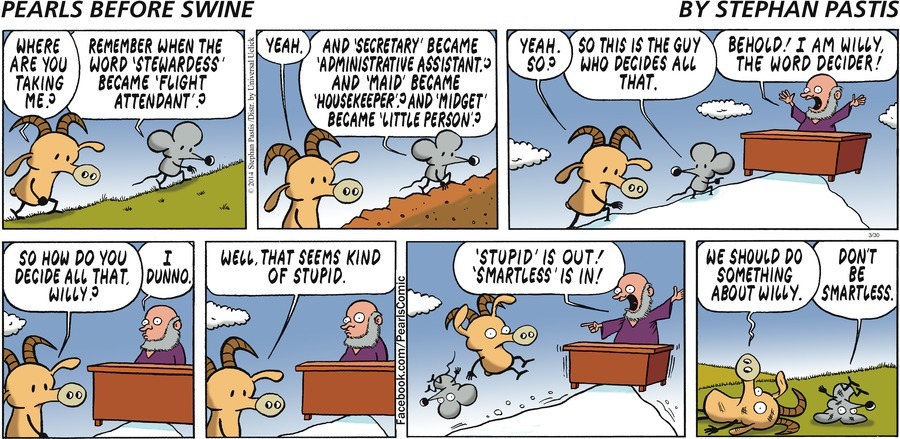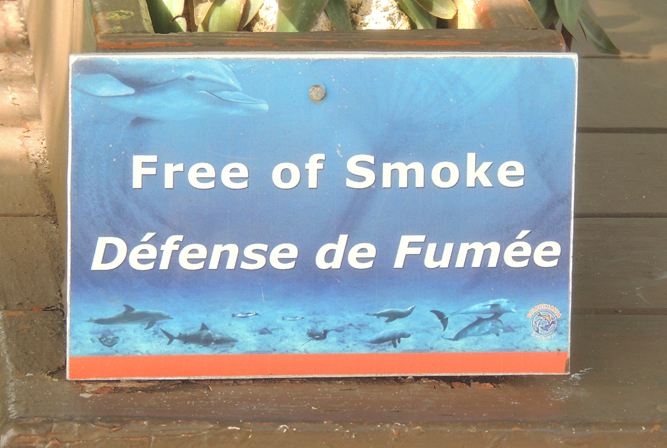Archive for March, 2014
March 31, 2014 @ 2:41 pm· Filed by Victor Mair under Language and politics, Translation
David Cragin, who teaches risk assessment at Peking University, mentioned to me that there is sharp controversy among his colleagues over how to translate the term "critical thinking" into Chinese. Dr. Zheng, the professor who runs the program David teaches for, was never happy with the traditional translation of "critical thinking", that is, pīpàn shì sīwéi 批判式思维.
Read the rest of this entry »
Permalink
March 30, 2014 @ 3:33 pm· Filed by Victor Mair under Writing
Three years ago, we looked at the decline in handwriting skills, both in alphabetic languages and with characters: "Cursive and Characters: Dying Arts". See also "Japanese survey on forgetting how to write kanji", "The esthetics of East Asian writing", and several posts on "Character amnesia".
Before the advent of computers, cell phones, and other electronic devices which do our writing for us, it wasn't always this way. Penmanship was a discipline that students practiced assiduously, and calligraphy was an art that vied with painting for compositional excellence and esthetic appreciation.
Read the rest of this entry »
Permalink
March 30, 2014 @ 9:23 am· Filed by Mark Liberman under Linguistics in the comics, Taboo vocabulary
Today's Pearls Before Swine:

Read the rest of this entry »
Permalink
March 30, 2014 @ 7:53 am· Filed by Mark Liberman under Phonetics and phonology, Variation
Linguists are generally scornful of "eye dialect", in both of the common meanings of that term:
- As an "unusual spelling intended to represent dialectal or colloquial idiosyncrasies of speech", like roight for right or yahd for yard;
- As a "the use of non-standard spellings such as enuff for enough or wuz for was, to indicate that the speaker is uneducated".
The first kind of eye-dialect is seen as inexact ("you should use IPA") and the second kind is seen as snobbish. I'm generally more curious than censorious about both of these practices; but in any case, I recently saw a case of the first kind that struck me as especially interesting.
Read the rest of this entry »
Permalink
March 29, 2014 @ 6:35 pm· Filed by Victor Mair under Lost in translation
The following photograph was taken at Dolphin Discovery on the island of Tortola in the British Virgin Islands:

Read the rest of this entry »
Permalink
March 28, 2014 @ 11:49 am· Filed by Mark Liberman under Syntax, Variation
From Breffni O'Rourke — David Alexander and Phil Stewart, "Nine officers removed, one resigns in Air Force cheating probe", Reuters 3/27/2014:
Nuclear critics say the problem is deeply rooted and has been going on for years, becoming increasingly acute since the end of the Cold War as the nuclear mission has increasingly come to be seen as a dead-end career that's relevance is in decline.
Breffni comments "I don't think I've come across that before. Maybe the writer was trying to avoid 'whose' with a non-human head?"
Read the rest of this entry »
Permalink
March 28, 2014 @ 7:01 am· Filed by Mark Liberman under Computational linguistics
From 3/28/2004, a post that asks a question for which I still don't have a good answer:
How many times does a word or phrase need to be repeated in order to seem characteristic of a speaker or author? I think that the answer is "not very many times, maybe only once or twice, if the use in context is salient enough".
Ruminations on related issues can be found in "Strange Bookfellows" and "Captain Crunch among the Literati". And since this question tells us as much about the reader or listener as it does about the writer or speaker, we should also consider the curious case of the president's pronouns.
Permalink
March 28, 2014 @ 6:41 am· Filed by Mark Liberman under Prescriptivist poppycock
Following up on a suggestion to bring back classic (or at least old) posts, here's one I'd completely forgotten: "Was Strunk imitating Quintilian?", 3/28/2009. Bill Walderman asked whether the "rule" prohibiting clause-initial position for however might have been an imitation of Latin and Greek second-position elements, and especially the treatment of autem.
After a two-cup-of-coffee research project, I concluded that Bill's idea is a plausible one:
[T]his whole line of reasoning is speculative at best. But it might help explain where Will Strunk got the strange impulse to declare that Mark Twain used however incorrectly two-thirds of the time.
Permalink
March 27, 2014 @ 4:14 pm· Filed by Victor Mair under Alphabets, Borrowing, Found in translation, Language and food
Rich Scottoline sent in the following photograph of a box of crackers that he happened across in a Nonghyup food store in South Korea:

Read the rest of this entry »
Permalink
March 26, 2014 @ 9:20 pm· Filed by Victor Mair under Lost in translation, Typography
John Considine found this circa 1880 advertisement in the Hong Kong 2013 catalog of Bernard Quaritch (with the note that "We have not been able to locate any other example of this kind of trade card"):

Read the rest of this entry »
Permalink
March 26, 2014 @ 12:11 pm· Filed by Mark Liberman under Computational linguistics, Psychology of language
Deborah Ball, "Pope Francis Appoints Eight to Sex-Abuse Commission", WSJ 3/22/2014:
Pope Francis on Saturday appointed a victim of sexual abuse and a senior cardinal known for his zero-tolerance approach to a new group charged with advising the Catholic Church on how to respond to the problem of sexual abuse of children.
The sequence "zero-tolerance approach to a new group" sent Tim Leonard down a syntactic garden path — he had to get past "charged with advising the Catholic Church" before he figured out that the cardinal was appointed to the new group rather than having a zero-tolerance approach to it. So Tim forwarded the example to me, and I had exactly the same experience.
Read the rest of this entry »
Permalink
March 25, 2014 @ 7:02 am· Filed by Mark Liberman under Semantics
"In the Unverified Digital World, Are Journalists and Bloggers Equal?", Slashdot 3/24/2014:
As the source of news moves increasingly away from traditional channels to the millions of people carrying mobile phones and sharing commentary, photos and video on social networks, the distinction between journalists and bloggers has become increasingly blurred. Making sense of this type of information has been as much a challenge for journalists as it has bloggers. Journalists, like bloggers, have had to learn new skills in working in this environment. Highlighting this has been the release of the Verification Handbook which attempts to educate journalists in how to process user-generated content in the form of videos or images acknowledging that much of the reporting about situations, especially emergency ones, comes from the public. The techniques outlined are accessible to anyone reporting on a story, adding to the eroding gap between bloggers and journalists.
Read the rest of this entry »
Permalink
March 24, 2014 @ 5:05 pm· Filed by Mark Liberman under Linguistics in the comics
Today's Dilbert exemplifies a "Rule of Polite Discourse" that's missing from Wikipedia's version:

Read the rest of this entry »
Permalink




